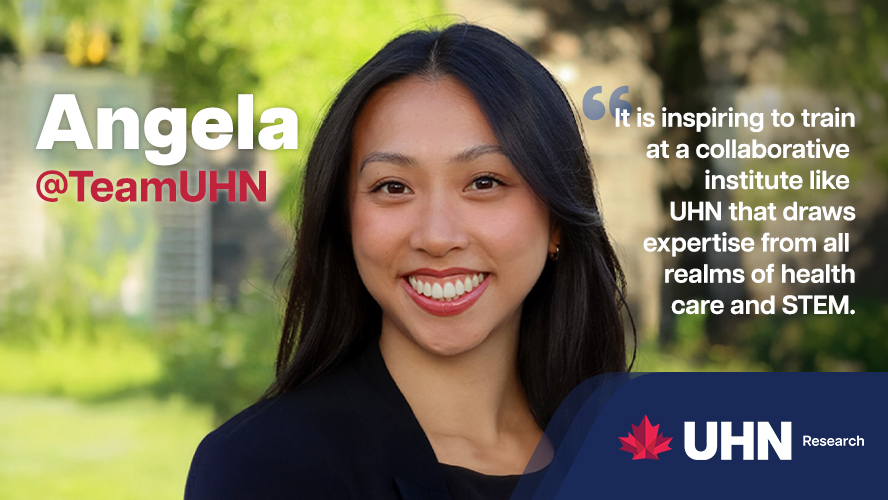
Tell us about your role at UHN.
I am a PhD student working in the lab of Dr. Sara Vasconcelos and a part of the combined MD/PhD program at the University of Toronto.
How long have you been in this role?
Since September 2023.
What are you passionate about in your role at UHN? What does health research mean to you?
I am excited to be advancing our understanding and development of vascularization technologies for regenerative medicine. Health research is a collaborative effort to achieve better outcomes and therapies for all patients. It is inspiring to be at a collaborative institute such as UHN, which draws expertise from all areas of health care and STEM (science, technology, engineering, and math).
What are you working on at UHN? How does your work help to advance UHN's vision of A Healthier World?
Approximately 70,000 Canadians have a heart attack each year. Triggered by a blockage in the vessels that feed the heart, a heart attack causes irreversible damage and reduces the heart’s ability to pump blood to the rest of the body. Recently, stem cells, which are cells that can multiply and develop into any cell type in the body, have emerged as a promising approach to generate new heart cells. Scientists have found a way to inject these stem cells into the heart to replace damaged tissue. However, this method has not yet succeeded in the clinic because of problems with cell survival caused by a lack of nutrient and oxygen delivery.
Our lab is studying a novel approach that transplants tiny blood vessels, called microvessels, harvested from fat tissue alongside stem cells into damaged hearts to help generate new heart cells. This technique has demonstrated success in restoring blood supply and improving stem cell survival in pre-clinical models. It is currently the only method that has shown long-term success in maintaining stem cell survival. However, to use microvessels in combination with stem cell therapies in humans, they must first be tested in non-human models to understand how they support stem cells.
My project focuses on evaluating whether microvessels are safe and effective in a model known to closely resemble human physiology. Using advanced imaging technologies, I am also studying how these microvessels develop and identifying the key factors needed for their maturation. In doing so, my work supports the translation of microvessel strategies into the clinic and helps establish a strong framework for ensuring their reliability in stem cell therapies. This research has the potential to improve heart attack treatment and the lives of thousands of patients.
What makes UHN an ideal place to advance health research?
No matter where you work at UHN—whether at the patient’s bedside, the lab bench, or in another setting—we all share one common goal: to improve patient lives and the future of health care. This is evident in every UHN building you walk into. It is an exciting and stimulating place to work because of this shared energy.
Do you have any interests outside of work?
Outside of the lab, I enjoy running, baking, and exploring the Toronto food scene. I am also a former synchronized swimmer, having swum for 15 years. I remain active in the synchronized swimming community through coaching and advocacy work.
What do you see for the future of health research, and what gets you excited about it?
As someone on a training path that combines patient care and research, I am excited about the opportunity to bridge these two areas. The future of health research is moving toward a model in which clinical insight and scientific inquiry are closely connected, and in which non-traditional fields work together to address complex scientific questions. I look forward to a career where I can see how these fields change as science advances and contribute to them in a meaningful way.
How to Participate in You @TeamUHN
You @TeamUHN is a campaign to highlight the important scientific contributions that research lab staff, trainees and learners, administrative staff, core facilities staff, Research Solutions & Services staff, and volunteers make towards A Healthier World through discovery and innovation. If you’re interested in sharing your story, we invite you to complete this form here (Open to UHN staff, trainees and volunteers).




